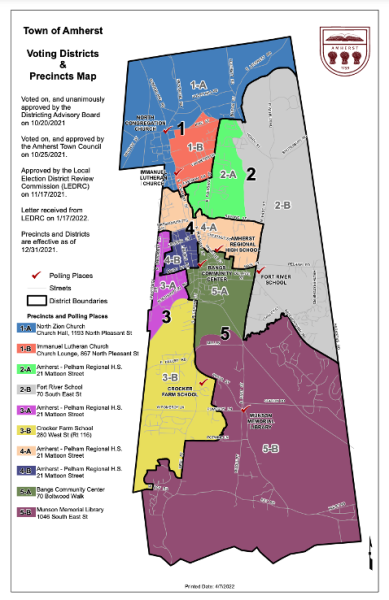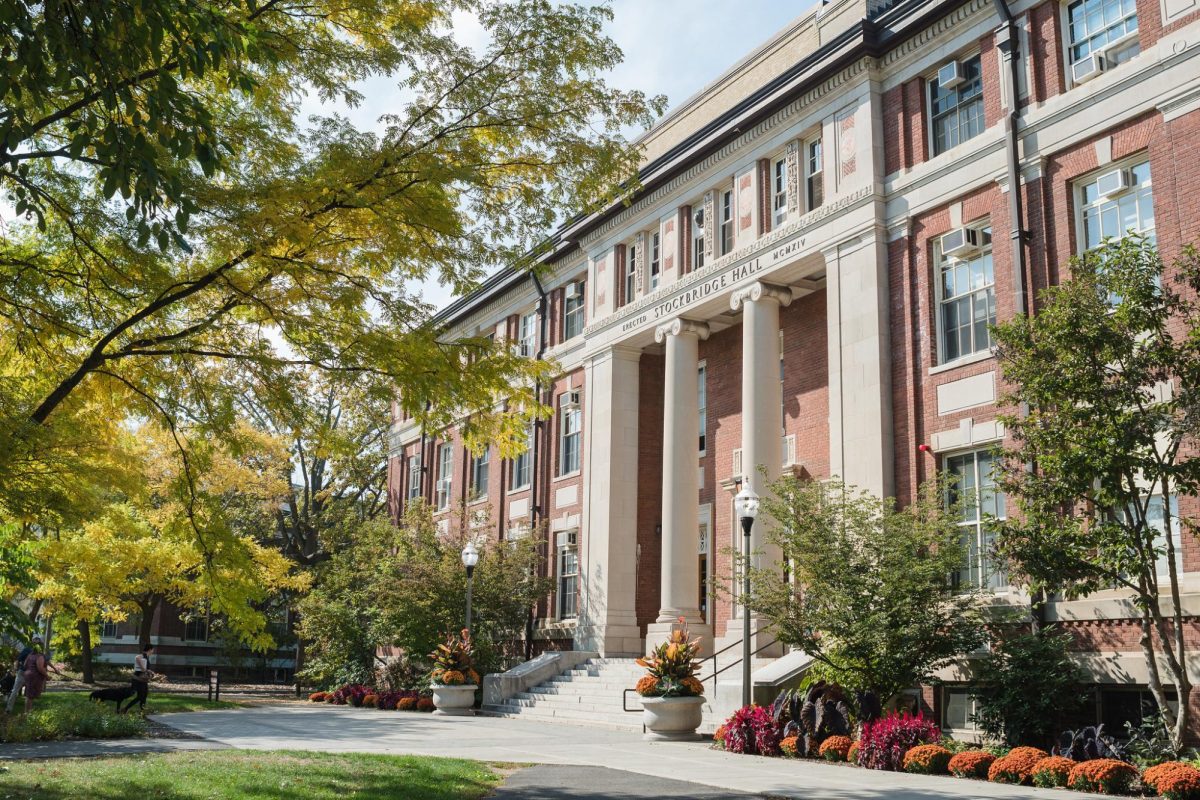
On Oct. 3, the University of Massachusetts College of Social and Behavioral Science hosted a hearing for the Amherst Town Council at the Bowker Auditorium in advance of the town’s Nov. 7 election, which features 16 council candidates up for re-election.
The UMass political science honors society Pi Sigma Alpha moderated the candidate forum, where students and community members could learn about town candidates and local issues such as housing, racial equity and the relationship between the town and University.
There were three rounds of questions, with one minute provided for each candidate to answer.
District three candidates Heather Hala A. Lord and Patrick Drumm expressed their own personal struggles around rent affordability in Amherst.
“I bought my house here in 2020 and I can confidently say that I could not afford to buy a house here today,” Drumm said.
Hala A. Lord estimated that around 55 percent of her income currently goes towards her rent.
Anika Lopes, who is running for District four, expressed concerns where she said she is a “renter suffocated by rent.”
Candidates also highlighted a lack of assistance for those who are trying to rent, and presented solutions such as increasing housing units, lobbying for state-moderated rent control, redefining affordable housing and restructuring zoning bylaws.
Current Amherst zoning laws favor construction of single-family homes and large-scale apartment buildings. District three candidate Dillion Maxfield, who serves on the board of licensing, said the need for inclusionary zoning would allow for “something in between,” which would help accommodate for more residential units in Amherst.
District three candidate George Ryan and at-large candidates Andrew Steinburg and Mandy Jo Hanneke echoed this concept.
“Most of us would acknowledge that [on a national level] historically, zoning has been used to exclude people,” Ryan said.
“If you work in Amherst or live in Amherst, you should be able to afford to live,” District two candidate Amber Cano-Martin said.
Other candidates addressed the fact that once students graduate, they are often priced out of Amherst and cannot further their career in the area.
Cano-Martin and at-large candidate Matt Halloway both were against future public-private partnerships.
“We do not want more dorms that are built with private companies that cost over $1000 a month,” Cano-Martin said.
District four candidate Pam Rooney was in favor of expanding these kinds of projects, noting that it would be “wonderful” to see additional partnerships in an attempt to increase faculty and student housing.
Moderators also asked the council to address their plans for reparative justice and racial equity for marginalized groups in Amherst. Several candidates noted funding and staffing shortages for the Community Responders for Equity, Safety and Service (CRESS) department. The town established CRESS in 2021 to provide civilian assistance as an alternative to the police department for non-violent crimes.
“We need to position CRESS to be successful,” District four candidate Jennifer Taub said. “We need to go into communities…and we need to bring our residents into our governing processes, so they have a seat at the table.”
The third question asked candidates to identify what the town council can do to better serve the student population in Amherst. There was a general consensus that the relationship between UMass and the town is not as strong as it could be.
District two candidate Lynn Griesemer and Steinberg described the relationship between students and town council as “a two-way street,” opening the doors for students to interact with council members.
At-large candidate Ellisha Walker expressed that the town should take advantage of student’s “expertise” to help with local projects and issues.
Amherst established the town council in 2018. There are 13 seats available on council, with two candidates representing each district. There are three seats for at-large candidates representing the entirety of Amherst.
Student Government Association President Tess Weisman, junior psychology major, encouraged students to take an interest in town elections. “It’s really important to know who the town representatives are,” she said. “The students and the town of Amherst interact so much, because you live there and hang out there…I think it’s great for all the students who showed up today to get that perspective.”
Grace Lee can be reached at [email protected] and Bella Astrofsky can be reached at [email protected].






















Jennica • Oct 5, 2023 at 7:20 pm
Excellent reporting. Thank you for this piece.